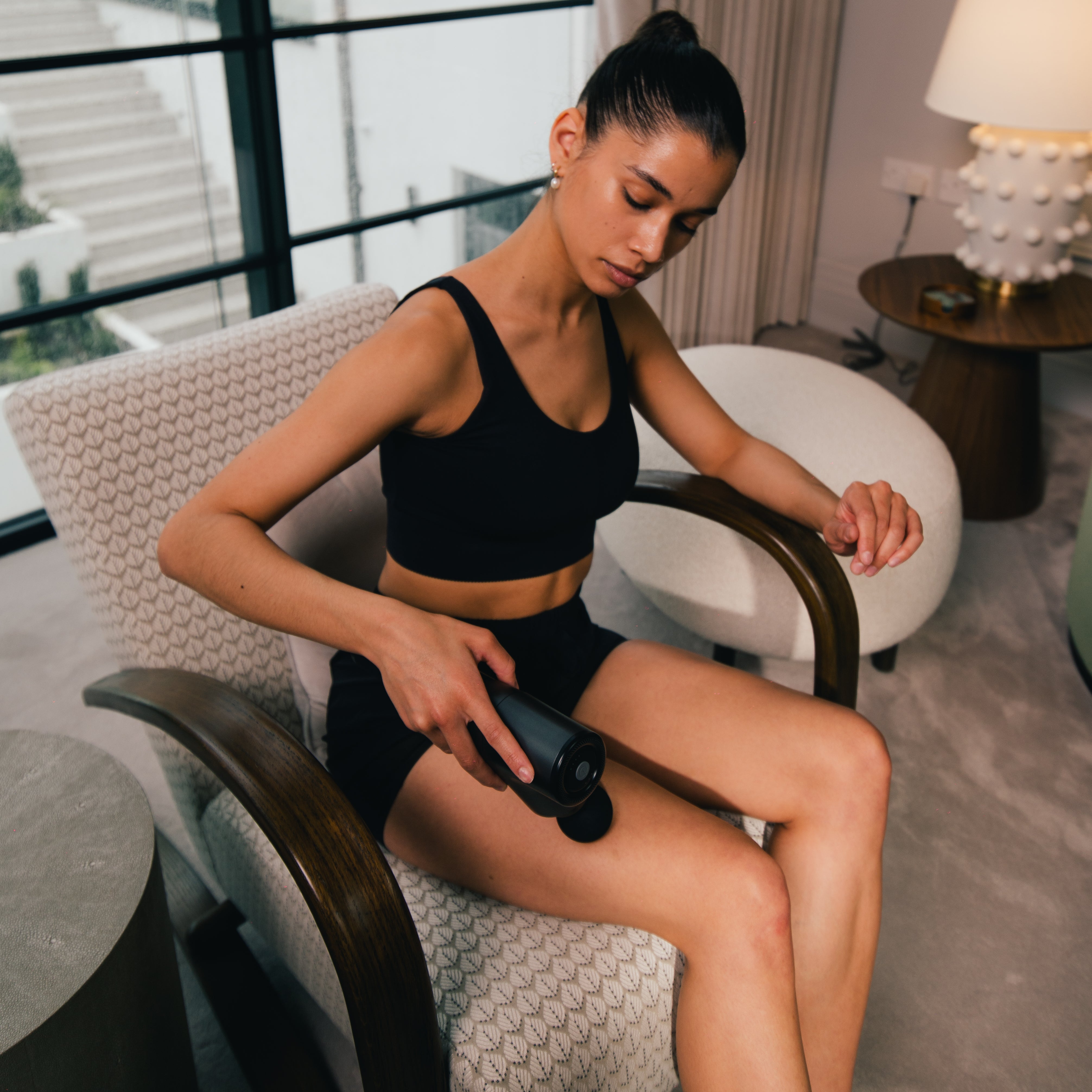It is no secret that sleep plays a critical role in training, particularly for muscle recovery and overall well-being. However, it’s difficult to know how much sleep you need and when.
Rest allows your muscles to recuperate from intense exercise. People who work out intensely, such as athletes, require more sleep than the average person. But how much?
While eight hours is recommended, Stanford's study of basketball players found that those who slept longer than 10 hours per night had several positive outcomes. It found that optimal sleep is a key factor in peak athletic performance. Subjects reported faster sprint times, greater shooting accuracy, greater vigor, and lower fatigue. They also had higher overall ratings of their physical and mental well-being in practice and game situations.
7 Ways Sleep Is Important for Muscle Recovery
- One function of sleep is to allow time for muscles to repair themselves. Most growth hormone is produced during non-rapid eye movement (NREM). This helps repair tissues damaged during training. The longer you sleep, the more time for your muscle tissues to regenerate and grow.
- Metabolic overload is when the muscles work excessively, exhausting glycogen stores for energy production. Your body continues to digest carbohydrates while you sleep and then metabolizes them into glycogen. Glycogen is stored in your muscle cells to help with contractions. One gram of glycogen can hold up to three to four grams of water. As glycogen is replenished, it helps increase your muscle size. This is one example of how glycogen helps your muscles recover and grow while you sleep.
- Good sleep is key to a healthy immune system. Aside from traumatic injuries, illness is the second leading cause of why athletes miss games. No matter what you do, quality sleep is essential for a strong immune system, which reduces the likelihood of becoming sick. This allows you to maximize your performance and become more productive.
- Sleep directly affects insulin, which is very important in muscle recovery. Insulin is responsible for transporting amino acids into cells to produce and store proteins. Dr. Portman mentioned in an article that insulin is the body’s ultimate healing mediator.
- A good night's rest allows anabolic hormones to restore tissues. On the other hand, lack of sleep can increase the levels of catabolic hormones responsible for energy production. If you feel exhausted and unable to fall asleep, or if your sleep was interrupted and you’re not feeling rested, this could be due to increased sympathetic nervous system (SNS) activity and higher cortisol levels. Cortisol is produced by the SNS, which converts free fatty acids to energy for exercise. However, with low glycogen levels, cortisol converts amino acids to adenosine triphosphate, which can inhibit muscle growth.
- Another research discovered that sleep deprivation could lead to muscle loss by reducing the body’s ability to produce hormones that help muscle growth and inflammation.
- Overtiredness, especially during exercise can lead to reduced reflex time or poor judgment, which could all result in a training injury. Sleep helps eliminate unwanted metabolic wastes from the brain cells. Researchers used mice to show that during sleep, the space between brain cells increases, allowing the brain to eliminate toxins that have built up in waking hours. These findings suggest that sleep may play a new role in both health and disease. Additionally, it increases blood flow to cells, bringing in important oxygen and glycogen that are necessary for cognitive performance.
It's also a good idea to plan your workouts according to how much sleep you can get each night. This will ensure that your workouts are efficient and will maximize your performance. If you have plans to attend a concert or go out with friends at night, it is less likely that you will get the recommended eight to ten hours of sleep. You don't have to skip your workouts. Instead, schedule your high-intensity training on days you are likely to get a good night of sleep. Schedule lower-intensity workouts for days your night-time routine may be disrupted. Schedule your workouts well so you're ready for the challenging sessions.
5 Other Ways to Get Better Sleep
Here are some tips to help you get quality sleep:
- Stick to a consistent sleep schedule: Establish a regular bedtime and wake-up time, and make sure you keep it up even on weekends and holidays. This will help regulate your body's natural sleep-wake cycle, which will help you fall asleep and faster wake up refreshed.
- Create a sleep-friendly environment: Make your bedroom dark, cool, and quiet. Use a comfortable mattress and pillows, and consider using earplugs or a white noise machine to block out any outside noise.
- Practice relaxation techniques: Before bed, try relaxation techniques such as deep breathing, progressive muscle relaxation, or meditation to help calm your mind and body.
- Avoid caffeine and alcohol: Caffeine and alcohol are both stimulants that can interfere with sleep. Try to avoid consuming these substances, particularly in the hours leading up to bedtime.
- Exercise regularly: Regular physical activity can help improve sleep quality. However, be sure to finish your workout a few hours before bed to give your body time to wind down.
- Get a massage. Massage can calm your mind and body, helping you fall asleep faster. One study proved that massage therapy can be used to treat insomnia and improve sleep quality among postmenopausal women. Massage guns are great tools for athletes, helping to reduce stress, inflammation, and soreness as well as improving circulation and mental clarity. Check PROGUN Elite or PROGUN nano.
It’s important to remember that everyone is different and it may take some trial and error to find the strategies that work best for you. It's also a good idea to speak with a healthcare professional if you are having trouble sleeping, as they can provide additional guidance and support.





Leave a comment
This site is protected by reCAPTCHA and the Google Privacy Policy and Terms of Service apply.